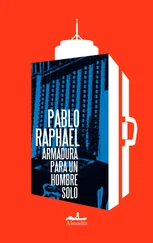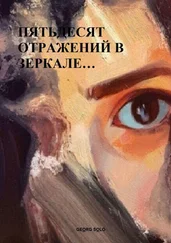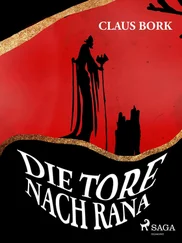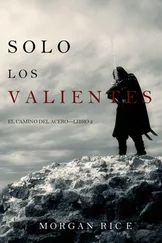‘And yet it says here—’
Popov stared for a moment. ‘No damage done,’ he said lightly. ‘None at all.’
He stubbed out his cigarette and took up a pencil. He crossed out a line from his notes, and wrote in an amendment.
‘I am an admirer of bourgeois science,’ he said magnanimously, making abstract diagrams on his paper. ‘In their day, the bourgeois scientists achieved some useful things.’
His diagrams followed the rise and fall of his speech, as if they were musical notation.
‘We have been a rural economy for many centuries, and it is difficult to put that behind us. But our leadership is strong, and the people are invigorated. Next year, our industrial sector will grow by sixteen per cent.’
The sharp tip of Popov’s pencil hovered.
‘Chemistry. Nothing will be more important than chemistry.’
He smiled at Ulrich.
‘It has been decided at the highest levels: Bulgaria will be the chemical engine of the socialist countries. We have ore, we have rivers, we have land and good climate. We have workers who will soon forget cattle and crude village dances and fill their minds with modern things. What we lack is chemists. We are training them: soon we will have world-class chemists in the thousands. But for now, everyone with even basic chemical knowledge has to do their part.’
The telephone rang.
‘Three million seven hundred thousand last year,’ Popov said immediately into the receiver. He wrote that number down absent-mindedly, as he listened to the commentary on the other end. Ulrich studied the sheet of paper to see whether he could decode Popov’s thoughts from his outlines.
Popov put the phone down. He looked into Ulrich’s face.
‘What are you thinking?’
There was a long silence. Ulrich said slowly,
‘Perhaps I could have some position at the university? I would like that very much. I could get back to my experimentation.’
Popov was unimpressed.
‘It’s many years since you studied chemistry, and science has moved a very long way since then. Moreover, your ideological credentials are unclear. No one knows where your loyalties lie. What kind of name is Ulrich ?’
‘It’s a German name, comrade. My father chose it.’
Popov took a long time to consider.
‘I don’t even know how to say it properly,’ he said. ‘It does you no favours, holding on to a name like that. If I were a suspicious man I would see a reactionary statement there. You could easily have changed it to something more patriotic and revolutionary. Ilyich, for instance, after our beloved Lenin. You should consider it.’
He looked over his papers.
‘Your mother’s opinions are particularly disheartening.’
‘My mother?’ echoed Ulrich.
Popov skimmed through his notes.
‘She continues to dwell under the influence of bourgeois-fascist propaganda. She praises bourgeois society. She said she would kill herself if the Russians did not leave. Blah blah blah. It leaves a nasty taste.’
He returned to his photograph.
‘This factory was built by Germans. Now they have gone, we are looking for someone to get it running again. I thought such a task would fall within your capabilities.’
Ulrich nodded, not able to look Popov in the eye. He kept his eyes on the notepad, where Popov had made a sketch of a bird perched on a lamp-post.
A week later, Ulrich took a bus to the factory, which was thirty kilometres outside Sofia. He was the only passenger, and he sat on the back seat. The sun was just rising, and the land was dewy, unlit and desolate. Old bomb craters in the fields had filled with water, and the wind whipped through the naked window frames of the bus. They made slow progress: the road became muddy, and the gears whinnied. The driver honked the horn to the rhythm of some tune in his head.
Ulrich saw pylons rising above the green bar of the horizon, and then the factory appeared, its smokestack frigid, its steel reactor rosy in the dawn sky. The bus dropped Ulrich off and drove away, and he stood by the roadside, turning around to take in the scene.
On the other side of the valley were barite mines, where the ore came from. Cables ran overhead from the mines to the factory, but everything was dead for now, and the lines of buckets hung empty, squeaking in the breeze. The town was quiet, and shaggy pigs ran in the streets.
Ulrich climbed through a hole in the wire fence, and walked on to the factory forecourt. Bracken had taken there, and the pipes were damaged in places. From high up, the chimneys whistled with the wind on their lips. The ladders went to the very top, one missing a rung, and Ulrich thought of what he would find when he climbed up there and looked down into the shafts.
He walked around the installation, studying how it was set out. The kiln was mighty, a ribbed steel tower laid out on its side. Spindly conveyor belts fed it at one end, where sparrows lined up chattering. He looked over the leaching tanks and the reactor vessel, where moss had started to grow. The mills looked run down and exhausted.
The former owners had taken everyone out in a hurry, and the debris of departure lay all around: discarded overalls and tin lunch boxes, a pair of broken spectacles and, in the office, a dusty scattering of old invoices and cigarette ends. People had written on the wall in childish German. On a bench, a plant had shrivelled in its pot.
The logic of the plant was gratifyingly simple. It was built for the production of barium chloride, and its design was an architectural expression of the chemical process:
1. BaSO 4+ 4C → BaS + 4CO
2. BaS + CaCl 2→ BaCl 2+ CaS
Ulrich checked the state of the pipework, following the lines on his knees, tapping a steady chink-chink against the wind’s commotion outside, and noting the dimensions of sections that needed to be replaced. He opened every valve wheel, checking the seals. Corrosion had worn the reactor walls too thin for continued use, and he made recommendations for a new vessel.
In the office he found volumes of the old logs, and he set to calculating the factory’s capacity, and the volumes of raw materials it could consume. He worked out what labour would be required. He inspected the town, and described the provisions for worker housing.
After the first few days he took to spending his nights in the factory. He brought the gramophone player with him on the lurching bus, and he spent obscure hours lying by the kiln, wrapped in blankets, with the valves and pressure gauges just above his head, and the brassy sounds of Louis Armstrong and Fletcher Henderson echoing in the expanse. He woke up stiff every morning, and lit a fire for tea, and he looked beyond the enclosure fence, where crested larks dipped over the straining grass, and he was absolutely, completely happy.
His report was later typed up and ran to sixty pages. The report was given to I. Popov for him to add his comments. He in turn handed it upwards, and it arrived, ultimately, in the lofty corridors of the Supreme Economic Council, where invisible experts of almost unimaginable intelligence performed the devilish calculations required to coordinate the production of barium chloride with the million other items necessary for the well-being of the Bulgarian People.
For months, iron balls swung against Sofia’s empty façades, watched by the murmuring crowds, who could still remember dimly what had once been inside. No matter how many times he saw the buildings come down, it was never enough for Ulrich to believe it.
He watched the cranes demolish the house he had lived in as a child. The neighbouring building had been directly hit, and his father’s Viennese fantasy had been blown wide open. The flues connecting the fireplaces to the chimney were now a gaping lattice on the outside of the building, and a wooden door opened into the void. The walls of Ulrich’s childhood bedroom were exposed to the sky, though the wallpaper had been changed since then. As they pummelled the stone, it was like a series of concussions, and the final dusty surrender came as a relief.
Читать дальше
Конец ознакомительного отрывка
Купить книгу












